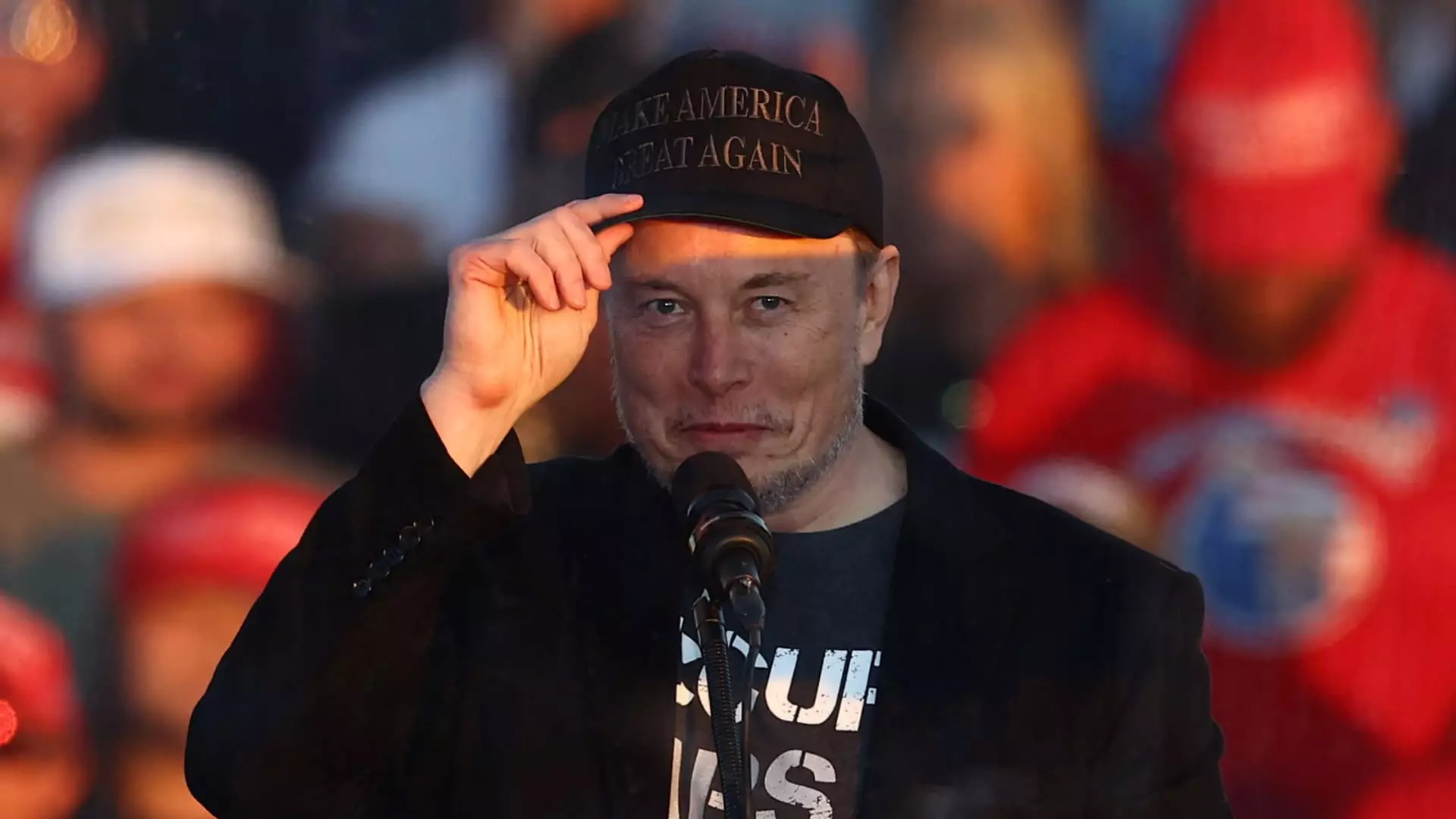Elon Musk has undeniably become one of the most influential figures of our time, not only in the tech world but also in the realm of politics. Recently, his comments endorsing the far-right Alternative for Germany (AfD) party have ignited intense debate and controversy. Musk’s statement—“Only the AfD can save Germany”—was made on his social media platform, X, and shared by far-right influencers. This incident raises pressing questions about the intersection of business, social media, and political ideology.
The endorsement of AfD is particularly troubling for a variety of reasons. Firstly, the party has been associated with a neo-Nazi image and has openly promoted nationalist and anti-immigrant sentiments. According to critics, including Sen. Chris Murphy, Musk’s comments only serve to legitimize a dangerous political ideology that seeks to undermine democratic values and rehabilitate the image of a troubling past. This endorsement also aligns with Musk’s history of supporting right-wing candidates and causes in other countries, demonstrating a troubling pattern in his approach to politics.
Naomi Seibt, the influencer who prompted Musk’s endorsement, has a documented history of advancing far-right ideas, including refuting scientific consensus on climate change. The sharing of such content raises ethical concerns about the responsibilities that come with having a platform that can reach millions. Musk’s access to an audience of over 200 million on X makes any endorsement he issues potent and potentially harmful.
Responses to Musk’s comments have come from various political leaders, including German Chancellor Olaf Scholz, who dismissed Musk’s claims as misguided. The political landscape in Germany is complex, particularly with the AfD’s growing influence. As polling shows the AfD climbing to potentially second place ahead of upcoming elections, the implications of Musk’s endorsement become even more pressing. This endorsement could galvanize supporters who feel disillusioned with traditional parties, thereby increasing the visibility and credibility of extremist ideologies.
Furthermore, Scholz’s own political struggles—having witnessed his left-wing coalition collapse—add layers of urgency and complexity to the political discourse surrounding Musk’s endorsement. Traditional parties in Germany have largely rejected forming coalitions with the AfD, but as the far-right gains traction, these stances may begin to shift, perpetuating a cycle of extremism.
What Musk’s endorsement signifies extends beyond Germany’s borders; it reflects a broader trend in Europe where far-right parties are gaining prominence, from Austria to Finland. This shift can largely be attributed to increased dissatisfaction with existing political structures, especially in times of economic downturn. Musk’s satirical commentary against traditional leaders not only underscores his detachment from mainstream politics but also echoes sentiments that resonate with far-right supporters.
Moreover, the economic argument made by the AfD against Tesla’s operations in Germany serves as a reminder that the backlash against foreign investment in domestic industries is not just about politics; it is also about economics. The AfD’s claims that Tesla’s Berlin factory benefits only a select few resonate with workers who feel left behind in a rapidly changing global economy. It highlights the tension between innovation and established economic interests, which forms a volatile bed for political alliances and anti-globalization sentiments.
The controversy surrounding Musk’s endorsement illustrates the unpredictable role that influential figures can play in shaping political landscapes. As social media becomes an even more integral part of political discourse, the weight of individual endorsements can lead to real-world consequences. While Musk may perceive his comments as a mere expression of opinion, the effects can ripple far beyond Twitter feeds, threatening democratic values and empowering far-right ideologies.
As we observe the unfolding drama in Germany and across Europe, it becomes crucial to analyze the motivations and implications of such endorsements. In doing so, it is apparent that the intersection of technology, business, and politics is a domain rife with challenges that society must navigate with care and vigilance.


Leave a Reply